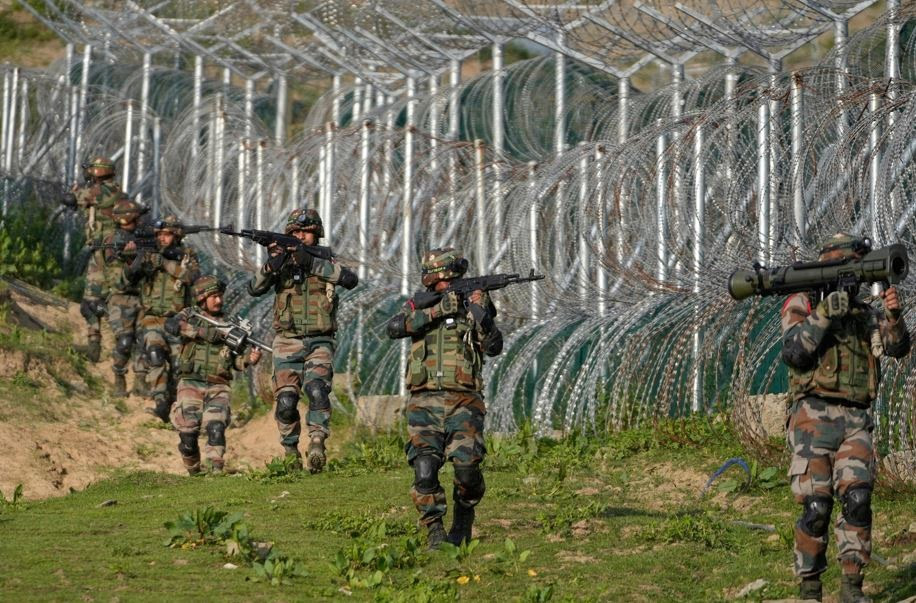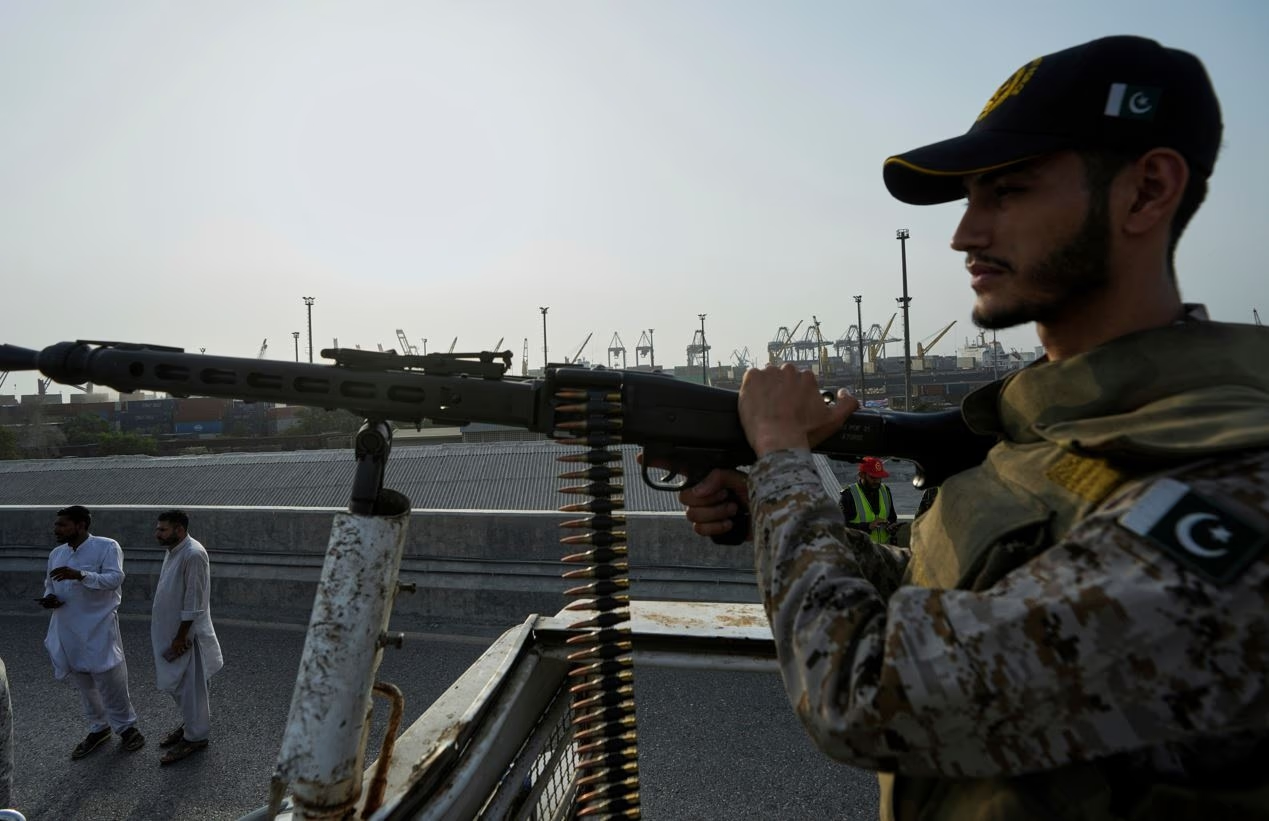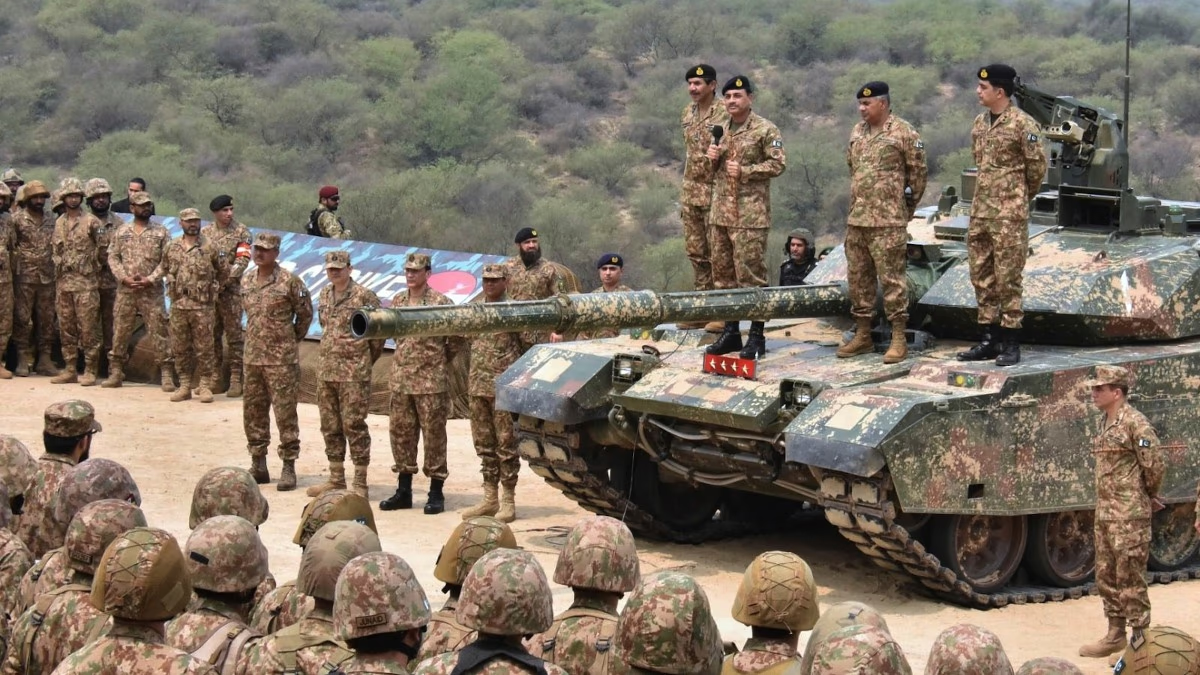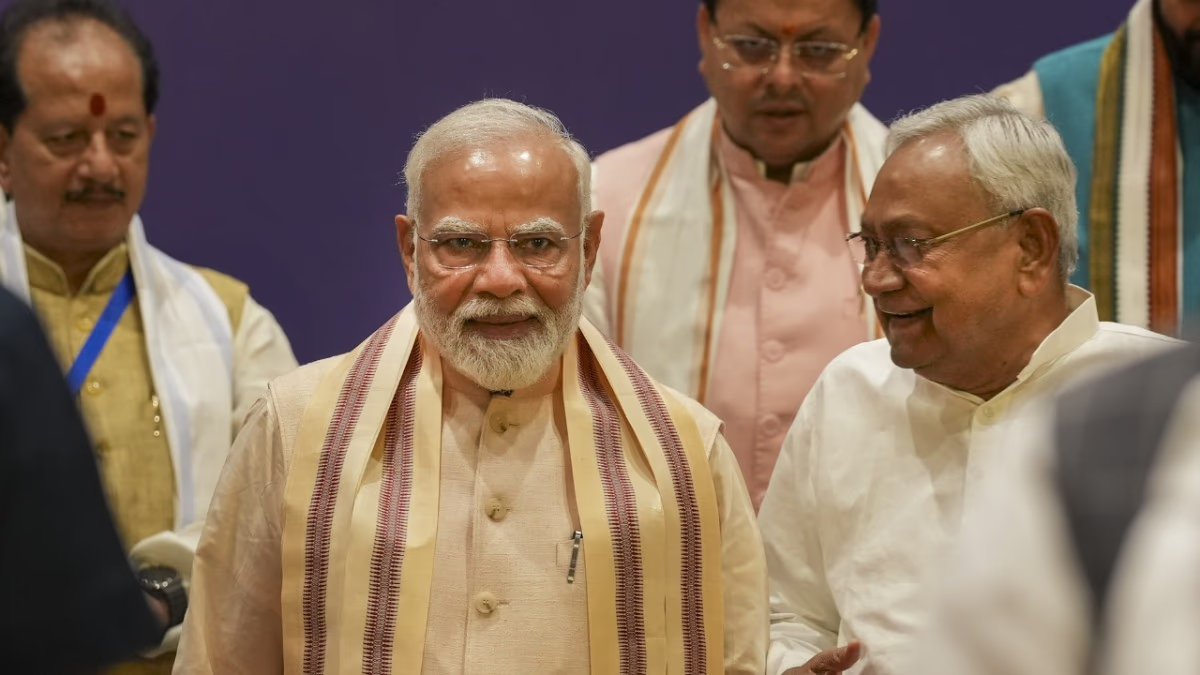During Operation Sindhur, India effectively thwarted each of Pakistan's attacks, delivering robust responses and revealing support for Pakistan from countries like China and Turkey. Now, a report from the U.S. Defense Intelligence Agency indicates that China is seen by India as a chief strategic competitor, while Pakistan is viewed as a pressing security issue needing urgent resolution.
Expectations of Persistent Regional Tensions
China aims to expand its influence in Asia through economic and military investments in Pakistan and other neighboring nations. The U.S. report highlights that in coming years, Pakistan's top military priorities include cross-border skirmishes with regional neighbors. Border tensions with India, terrorism activities, and aggressive rhetoric over Kashmir remain part of this strategy. India has repeatedly raised international concerns over Pakistan-sponsored terrorism and ceasefire violations along the Line of Control (LoC).

Source: aajtak
The U.S. intelligence report illustrates that amid efforts to combat terrorism, Pakistan is modernizing its nuclear arsenal in response to escalating attacks by Tehrik-e-Taliban Pakistan and Baloch nationalist insurgents. Despite daily operations last year, terrorists were responsible for over 2,500 killings.
Modernizing Nuclear Capabilities
Pakistan views India as an existential threat and continues to develop and modernize its nuclear weapons to counter India's conventional military capabilities. Pakistan is enhancing its nuclear arsenal and fortifying the security of its nuclear command.
Further Reading:
Backed by Chinese assistance against India, Pakistan primarily benefits from Chinese economic and military investments. Annually, the Pakistani military engages in joint exercises with China's People's Liberation Army, including a new air drill scheduled to conclude in November 2024. Supplies and technology predominantly from Chinese suppliers, with occasional assistance from Hong Kong, Singapore, Turkey, and the UAE, support Pakistan's WMD program.
China's Investments in Pakistan
Reports indicate that terrorist attacks targeting Chinese workers on the China-Pakistan Economic Corridor project have emerged as a point of contention between the countries. In 2024, seven Chinese nationals were killed in Pakistan. In January 2024, following cross-border airstrikes by Pakistan and Iran in response to terrorism, high-level meetings were conducted to ease tensions.

Source: aajtak
September 2024 saw skirmishes near border posts between Taliban and Pakistani border guards, resulting in the deaths of eight Taliban fighters. In March 2025, Pakistan and Afghanistan launched airstrikes on each other's territories, targeting alleged terror infrastructure.
India's Focus on Partnerships
To balance China's influence and strengthen its global leadership, India prioritizes bilateral defense partnerships in the Indian Ocean, encompassing military exercises, training, arms sales, and information exchange. India has also enhanced trilateral cooperation in the Indo-Pacific and plays an active role in multilateral forums like 'Quad', BRICS, Shanghai Cooperation Organization (SCO), and ASEAN.
Further Reading:
In late October 2024, India and China reached an agreement to withdraw troops from two areas along the disputed Line of Actual Control (LAC) in Eastern Ladakh. Although not a resolution to long-standing boundary disputes, it somewhat eased tensions post-2020, when clashes along the LAC resulted in casualties on both sides.
Strength in 'Make in India'
India remains committed to boosting its 'Make in India' initiative this year to empower the domestic defense industry and address supply chain concerns. In 2024, India continued upgrading its military capabilities, testing the nuclear-capable Agni-I Prime medium-range ballistic missile (MRBM) and Agni-V Multiple Independently Targetable Reentry Vehicle (MIRV). Furthermore, India included its second nuclear-powered submarine in the naval fleet, solidifying its nuclear triad.
Further Reading:
India will uphold relations with Russia until 2025, viewing them as vital to its economic and defense goals. According to U.S. intel reports, under PM Modi, India has reduced its purchase of Russian military equipment but still requires Russian parts to handle potential threats from China and Pakistan. PM Modi's defense priorities likely focus on showcasing global leadership, countering China, and boosting New Delhi's military might.




